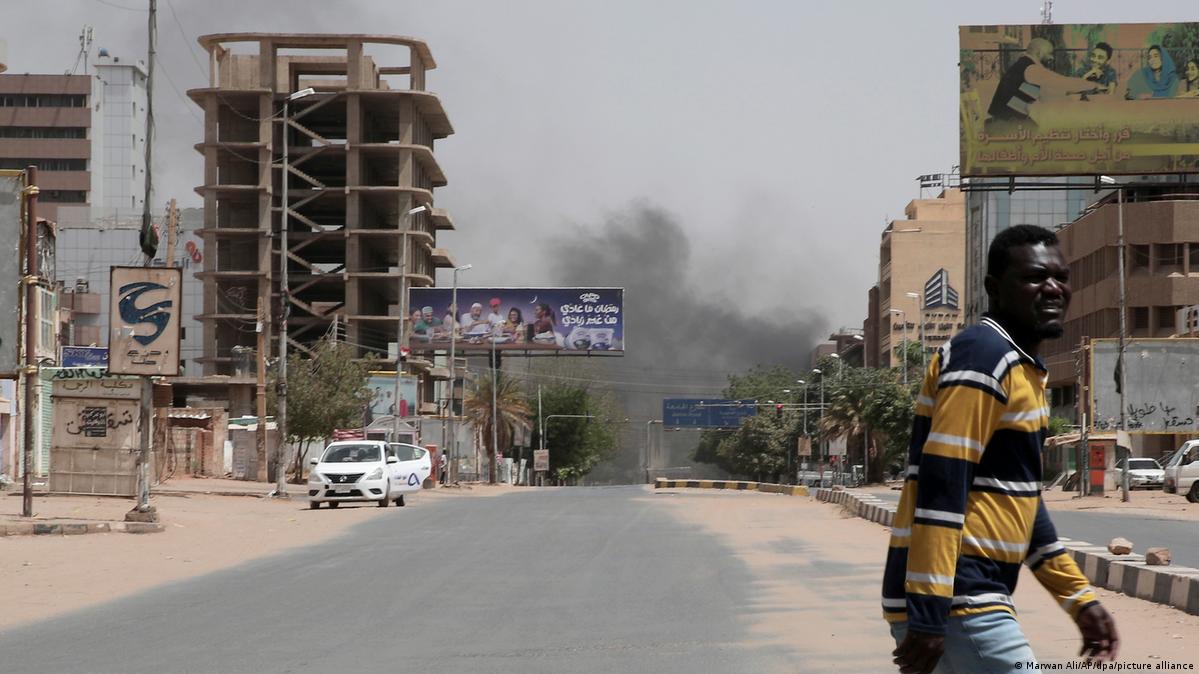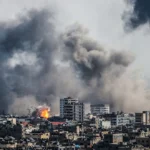Sudan has for the past month been gripped by intense fighting between the army and rival paramilitaries embroiled in a power struggle 18 months after a military coup derailed the country’s transition to civilian rule.
Hundreds of people have been killed and nearly a million displaced in the war between army chief Abdel Fattah al-Burhan and deputy-turned-rival Mohamed Hamdan Daglo, who commands the paramilitary Rapid Support Forces (RSF).
Here are the main developments in the conflict:
April 15: Fighting begins
On April 15, explosions rocked the capital Khartoum. The fighting came days after the second postponement of the signing of a final deal on returning to civilian rule, due to a disagreement over the integration of the RSF into the regular army.
- May 29: Police launch manhunt for politicians plotting to scuttle inauguration
- NIGERIA DAILY: How Nigerians Benefit From Islamic Financial Instruments
The paramilitaries and army both accused each other of attacking first.
The RSF said it controls Khartoum airport, the presidential palace and other key sites. The army, which said it carried out air strikes on RSF bases, insists it is still in charge.
Fighting also erupted in the western region of Darfur – still reeling from a brutal war that began in 2003 – where three UN World Food Programme employees were killed.
Civilian leaders in Sudan called for an immediate ceasefire, as do the African Union, the United Nations, the United States and Britain, among other countries.
April 22: Rush to evacuate
In the days that followed, countries the world over rushed to prepare evacuations of their nationals and those of other countries as the fighting escalated.
On April 22, Saudi Arabia became the first country to announce the successful evacuation of civilians from the battle-ravaged country.
Thousands of Khartoum residents also flee the fighting along roads lined with corpses and burned-out military vehicles.
The United States military evacuated US diplomatic personnel from Khartoum. Numerous other countries followed.
April 25: Failed truces, jailbreak
Multiple truces were announced but none has been respected.
The United States and Saudi Arabia negotiated a 72-hour nationwide ceasefire starting April 25. The paramilitaries and the army repeatedly extended the ceasefire but continued to trade fire, accusing each other of violating it.
On the same day, Ahmed Harun, a leading figure in the regime of ousted strongman Omar al-Bashir, and who is charged with crimes against humanity, announced that he had escaped from prison with other former regime members.
Bashir, who is wanted by the International Criminal Court on genocide charges over the war in Darfur, had already been transferred to a hospital before the fighting began, the Sudanese army said.
The violence reached a new peak on April 27 when fighter jets pound the paramilitaries’ positions in Khartoum.
On May 4, US President Joe Biden said the fighting “must end” and authorised potential new sanctions against those responsible for the bloodshed.
May 5: 750 killed
More than 750 fatalities have been reported since battles began, according to the Armed Conflict Location and Event Data Project.
UN special representative Volker Perthes said armed “fortune seekers” from Mali, Chad and Niger are joining the fight.
May 6: Jeddah talks
US and Saudi-backed talks between the army and the RSF began in the Saudi port city of Jeddah but have yet to yield a ceasefire, more than a week later.
On May 11, both sides agreed to allow urgently needed humanitarian aid to reach war-struck areas, committing “to ensuring the protection of civilians”.
The UN said on May 12 that the conflict had caused 200,000 people to flee the country, bringing the total number of displaced people to nearly a million.




